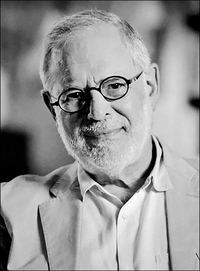Life, the Movie
Neal Gabler. Alfred A. Knopf, $27.5 (320pp) ISBN 978-0-679-41752-1
Even before the first tabloids began hawking true-crimes stories and trashy melodramas to 19th-century readers, mass entertainment had cast a spell over American life. How that spell has been magnified to such an extent that entertainment is now ""the most pervasive, powerful and ineluctable force of our time"" is the subject of Gabler's slashing, sometimes dubious, critique. ""Entertainment"" for Gabler (Winchel: Gossip, Power and the Culture of Celebrity) is virtually any kind of public fantasy or performance that, in contrast to high art, serious thought or gritty reality, is meant to appeal to the widest possible audience. America has become an ""Entertainment Republic,"" he writes, in which lives are lived for the media, events are staged for the media and no public institution is uninfected by the ""ebola virus"" of mass entertainment. Gabler has a keen eye for the absurd detritus of cultural history; he skillfully interweaves events as different as the murder of Helen Jewett in 1836 and the ongoing Clinton scandals (both are ""lifies,"" media spectacles ""written in the medium of life""), and individuals as different as Buffalo Bill Cody, who rode into battle in Hollywood costume, and the surgically reconfigured Michael Jackson, ""a posthuman for the era of postreality."" This is no linear history, however, but a grab bag of ideas and events, larded with citations to a huge array of critical thinkers (e.g., Daniel Boorstin, Marshall McLuhan, Neil Postman). Entertainment is certainly a handy concept to explain how the media has changed how we live and think. But readers will find Gabler's tendency to boil American history down to this one master narrative reductive to be an often fascinating but far from persuasive trip down a rabbit hole of cultural theory. (Dec.)
Details
Reviewed on: 11/02/1998
Genre: Nonfiction


